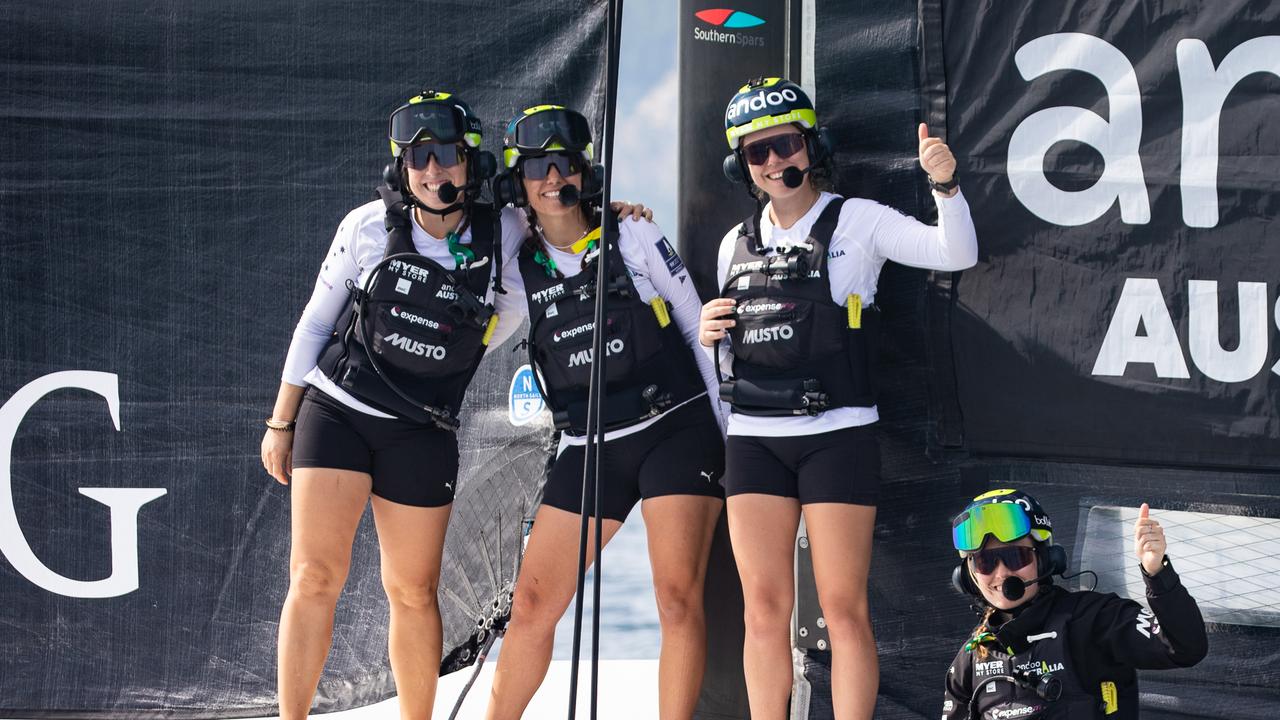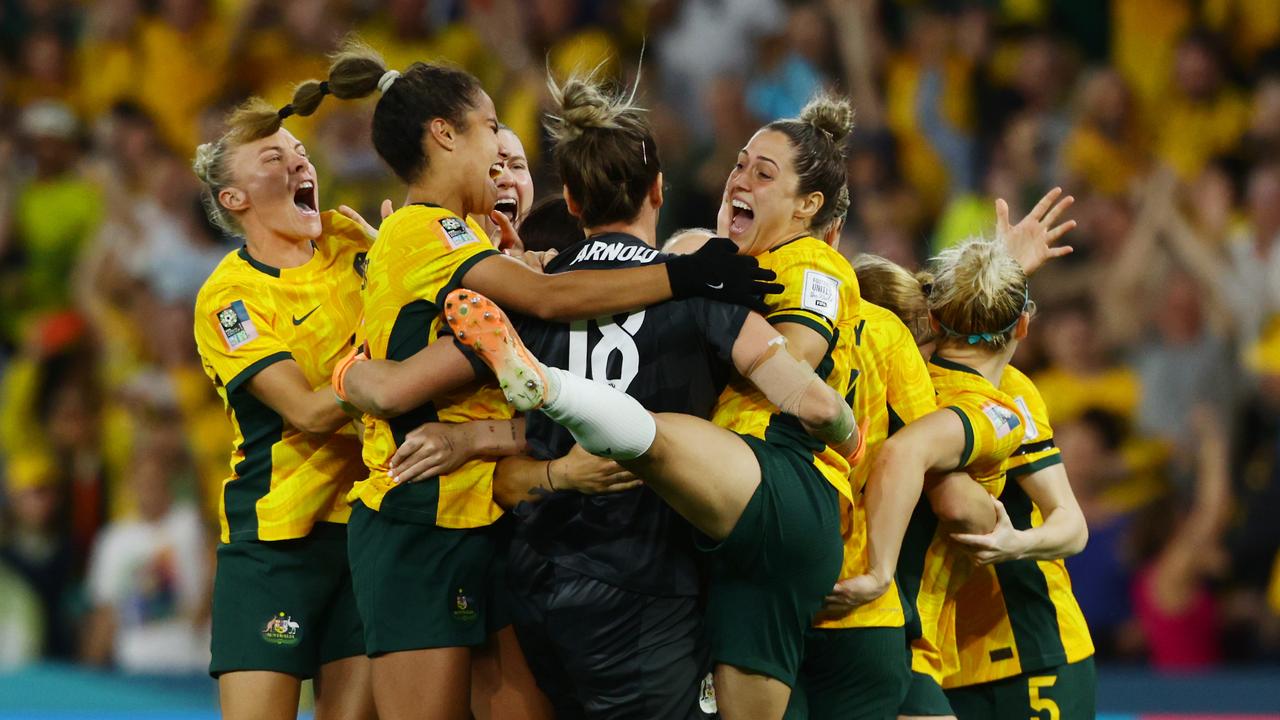WNBL star Rachel Brewster may have to quit as an elite athlete because she makes no money
Rachel Brewster is a star in one of the best basketball leagues in the world with an important decision. Mortgage her future to continue playing, or give up on her dream?
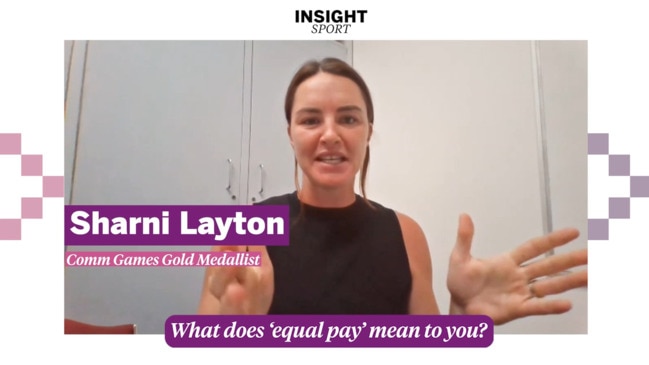
Insight
Don't miss out on the headlines from Insight. Followed categories will be added to My News.
Rachel Brewster is a championship winner in one of the best basketball leagues in the world.
But she, like so many other women in Australia’s WNBL, is facing the hardest decision of her life.
Mortgage her future to continue in the sport she loves, or give up on her dream and begin setting up her life?
At 26, Brewster spent four years at NCAA Division I school Utah State and another four with Melbourne Boomers — but she’s never made enough to get by.
That’s the fate of so many women across the country who make up rosters in the elite Australian league.
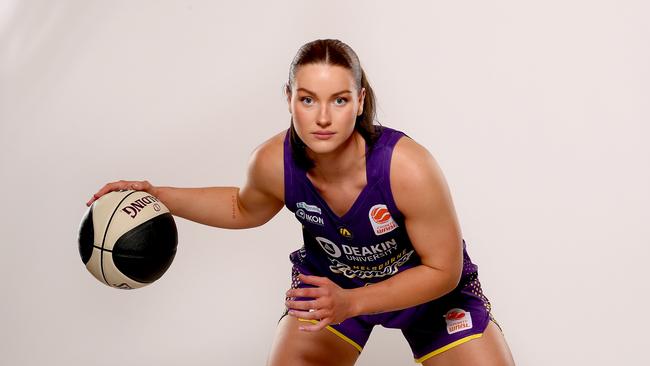
Her first two seasons were as a development player. Women in this category don’t get paid a cent — it’s seen as a privilege to cut your teeth against Olympians and WNBA players. She’s one of the ‘lucky’ ones who managed to convert those two years of proving her worth into a full roster spot.
But the pay is still paltry. So she’s forced to find ways to work casual jobs, in between training.
“For me, it’s definitely at a point where I’m 26 years old and I’ve never had a full-time job, I’ve got no savings and I’ve got no experience in the workplace,” Brewster told Insight.
“I’m in a spot where I might have to start working full-time and just play NBL1 semi-professionally, because that will fit around my work-life balance where I can actually set up my future.
“I’m playing in the WNBL at this elite level, but I can’t make anywhere near a living off it.”

Odds are, she never will, and neither will teammate Lou Morgan, a gold-medallist at junior level, who balances her WNBL commitments with working full-time at Rowville Secondary College’s Sports Academy. There, she juggles a marketing and social media role with coaching student hoopers.
It means her day often starts before 6am and doesn’t end until after 6.30pm, with trips between her Upwey home, the Boomers’ Parkville digs and the school. She faces weeks in a row where she does not take a day off from either work or basketball — and, while she’s had the flexibility to work while on the road with the team, she makes up for lost time in the off-season.
“The team typically does weights after training, but we’ve worked it out so I can get in before training,” Brown, 27, said.
“So I leave the house, at the latest 6.30am, because the traffic is really unpredictable — but it’s usually pretty s**tty.
“Then, after weights, shoot around and get ready for training, watch film, depending on the day, then train from about 9.30-11am or 11.30am and hit the shower and on the road again.
“I’ll work until 3.30pm, then do coaching and I’ll usually get home at 6.30ish, by the time I’m done.”
It’s a punishing schedule just hearing her say it.
“At first I was exhausted, it’s been full on, but you just find a way to keep on keeping on.
“I’m lucky to have a really understanding boss who wants to see me do well in the WNBL and an understanding club.”
WHEN YOU’RE ELITE, IN SPITE OF THE ODDS
At the pinnacle of your sport, improvement comes from finetuning your game and looking after your body. For both women, prehab and rehab is almost non-existent. It’s hard to fit in time with the physio or trainers. Getting extra shots up outside of scheduled training times is nearly impossible for Brewster and often happens on lunch breaks in the Rowville school gym for Brown.
“The biggest thing I miss out on is recovery, because I’m just moving around so much, I’m on my feet at work,” Brown said.
“Then, trying to find 30 minutes before training to get extra shots up, I’m lucky to have a boss where I can go into work and shoot around at lunch time.”
In the NBL, development players get paid and, while some wages are still low, the overwhelming majority make enough scratch to get by — it’s their full-time job and, on the whole, they can get in the gym whenever they want.
The men’s league salary cap is a tick over $1.7 million. The WNBL’s? $430,000.
Brewster refuses to take away from the men’s league — says they deserve everything they get for putting their heart and soul into the sport.
“It’s very frustrating for us not being able to fully focus on our sport,” she said.
“You’re achieving a dream but then potentially having to give it up.
“The men obviously make more money, they have more opportunities to go into business and make more connections. It’s so much harder for us.”
She believes every player should be able to make a living if they play in the WNBL.
“It’s a credit to us and the women in the league that we still play at such a high level and we do maintain that elite athlete status but we’re not all fully-professional athletes.”
CALL US WHEN YOU’RE DONE
Brewster is a smart cookie. She studied exercise and sports science at Utah and has an interest in athletic development — working with sportspeople on injury prevention and rehabilitation.
“I’ve had so many people say to me, ‘when you’re done with basketball, let me know’,” Brewster said.
“I’m just like, ‘when am I going to be done with basketball?’.
“They’re all ‘we can give you these hours’ and they’re minimal hours but you have to be available for all of them to be hired.
“The end of this season, I need to sit down and reassess, because my career outside of basketball is just there, waiting for me.”
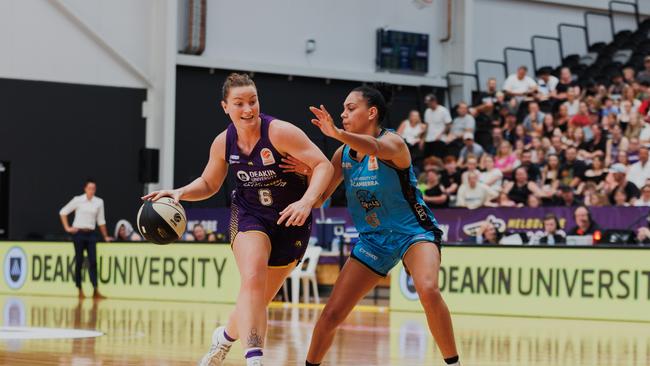
Brewster knows she’s not the first — and won’t be the last — player to face the same life-changing decision.
She’s got friends who have been there and done it.
Most tell her the same thing.
“I have a lot of friends who have been in the same situation — they’ve been a development player in the league for five years but were never quite able to crack it, so they’ve had to give it up and move on,” she said.
“Honestly, most of them are just like ‘it’s less pressure’ they’re making a great income in their new job and they can still play at a high level in a semi-professional league (NBL1),” Brewster said.
“You’re playing a professional sport but the grass might actually be greener on the other side.
“It’s really sad and disappointing to think about that.”
For now, the pair will keep on keeping on to keep the dream alive.
“Brewy and I, we’ll often say ‘off to work again’, as we leave from training,” Brown said.




